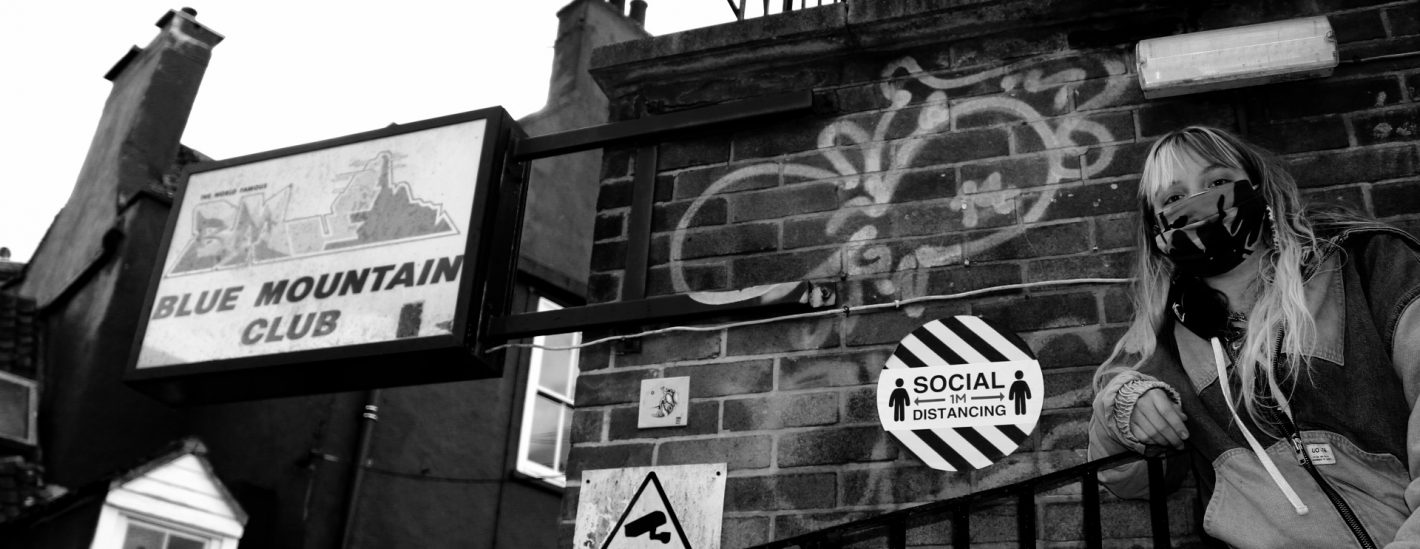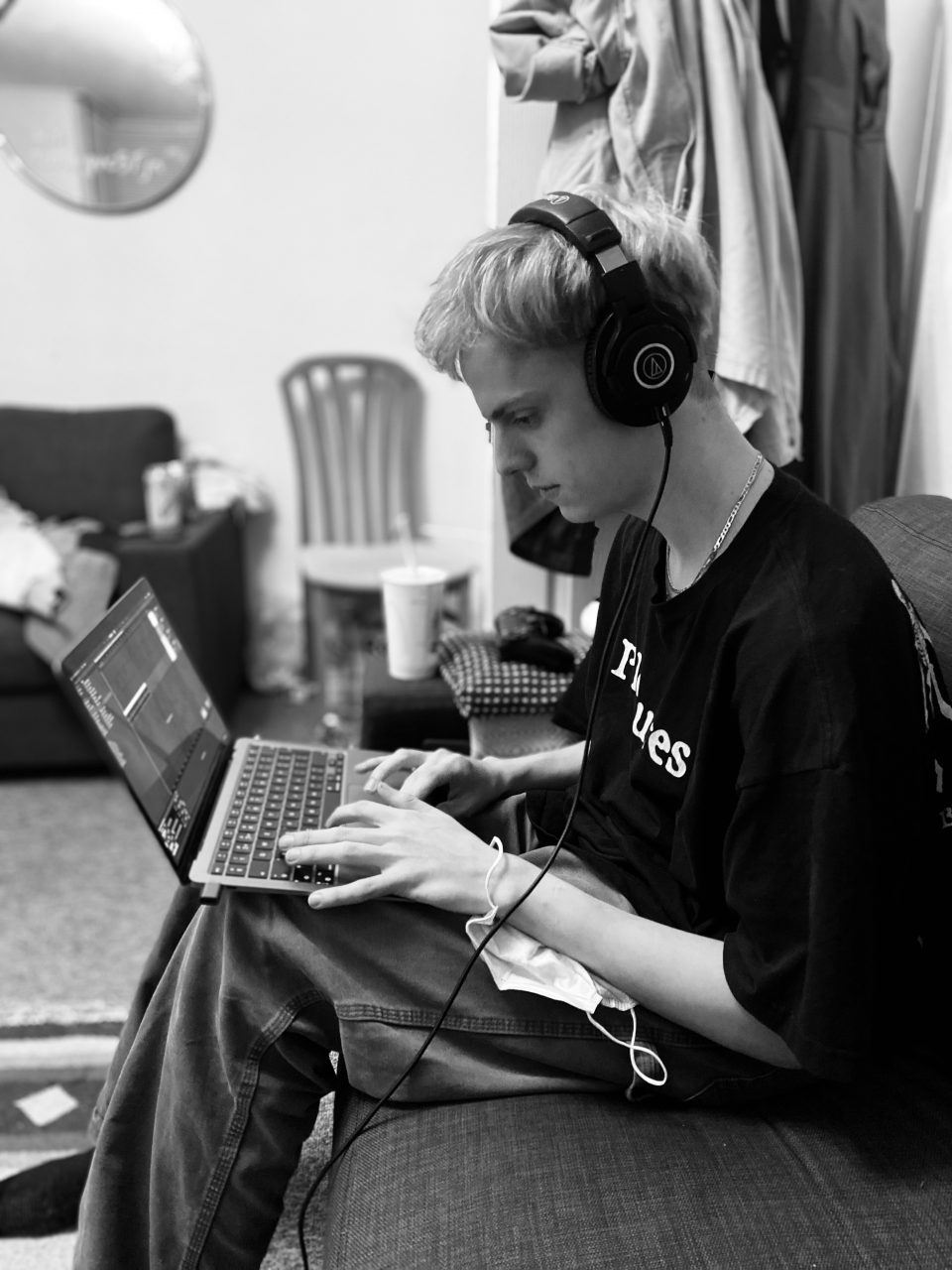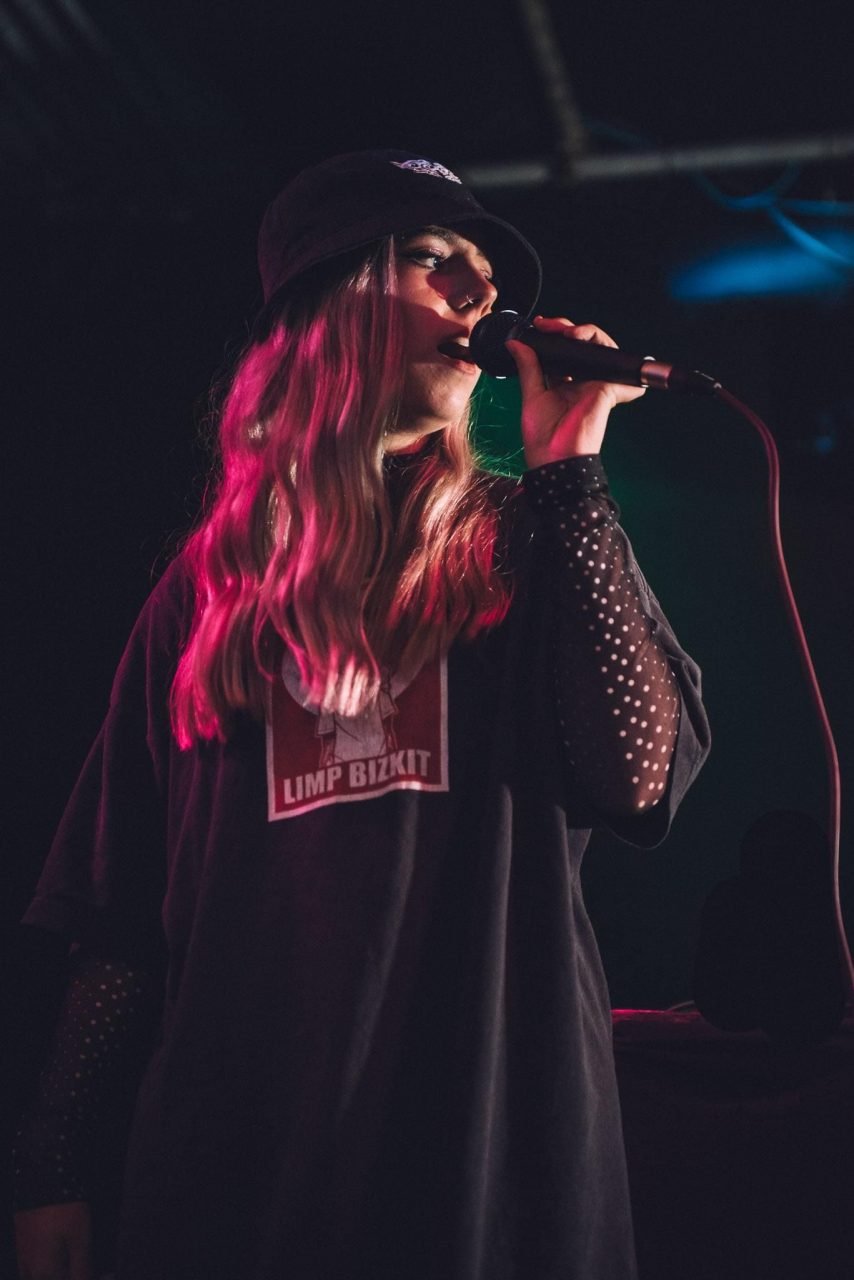Current: Behind The Screen – Musicians in Lockdown
 By Resonate | April 30, 2021
By Resonate | April 30, 2021
Words By Lewis Haywood
On a drizzly weekday in early March 2020 outside The Brickworks in Nottingham, I found myself in a queue amongst 400 others eagerly anticipating a set from drum and bass hotshots Kings of the Rollers. Smoking area conversations flowed with discussions about summer plans and festivals, cigarettes and drinks were shared, and people embraced freely. Occasionally, someone would bring up the newly coined “Coronavirus” which was swiftly drowned out by a volley of verses let out by the accompanying MC on the night, Inja. Speaking to people there was a general feeling of untouchability, that this virus couldn’t possibly have an impact on our lives, especially those in attendance, where the majority were between the ages of 18 and 21 who all had greater worries as young adults; relationships, uni work or which bottle of Echo Falls to pick out from the corner shop that night. Little did I or anyone else realise the lights in The Brickworks would fall dark in no less than a week, sound systems go silent and beer taps run dry in venues across the country and the world for the foreseeable.
On the 23rd March 2020 at 8pm, everyone in the UK huddled round the box to listen to Boris Johnson speak from his lectern and utter those very much engrained words, “stay at home”. This was met by a mixed reaction across the UK. Children rejoiced, as it meant no school and therefore no homework, and families dug out the board games for three weeks (supposedly) of quality time.
However, for musicians and performers alike, this marked the start of the biggest crisis to hit the industry in years. In March 2020, according to the Office of National Statistics, there were around 52,000 musicians employed or self-employed working full-time within the industry, many of whom relied on live events solely or for the majority of their income. This number would fall to just under half within the year with the Musicians Union reporting that 47% of musicians have had to seek work elsewhere. Musicians who had trained for years in their trade, mastering the art of evoking emotion, put down their violins and electric guitars and trawled the job sites amongst thousands of others. Musicians stacked shelves in shops such as Tesco and Sainsbury’s, others donned warehouse overalls and some turned to tutoring over zoom. Many weren’t as lucky, having to resort to the barely survivable support that Universal Credit gave and enduring the hell-like waiting times listening to a crackly Vivaldi’s Four Seasons for eight hours at a time.

Initially, when the government announced a swathe of packages to help those affected by the crisis, they covered big business, small businesses and a focus on essential services, however, there was little to no word on how to support the £5.2 billion music industry and the self-employed were merely left to fall at the wayside. Horace Trubridge, Secretary for the Musician’s Union in a plea to the government exclaimed, “We never ever imagined that something like this, so catastrophic could come along that would kill live music for a period of time.”
Looking back on a year of lockdown, it is now clear that the impact of being locked up in our homes has not only been a financial hardship but had an emotional and mental impact. The charity Help Musicians released a report from a study of 700 musicians in the UK which revealed that 87% of musicians said that they have experienced a deterioration in their mental wellbeing. This is hardly surprising, for an industry that relies on human contact and raw emotion at the very core of its existence, taking away that big serotonin hit for musicians and going “cold turkey” was always going to be tough.
It is common knowledge that venues are much more than the music itself. There is a shared camaraderie between punters and musicians, there is something moving about an ecosystem of different people from different cultures and backgrounds uniting over a shared passion. Some of the greatest friendships are forged in the queue for the toilet or a sticky bar. Nights out and music provide a much-needed break from reality, and in a world that stops for no one, music has the ability to pause the busiest of people and forget about the trials and tribulations of everyday life.
In February I sat down with Shortghost (Morgan), a 19-year-old amateur producer from Bristol, his “studio” was a seat on his sofa with a laptop perched on his knees and a McDonalds milkshake at arms reach for energy. I brought up the topic of lockdown, the words “frustration and bored” cropped up multiple times. I posed the question on how he managed to stay motivated and whether he felt that he made the most of his spare time; “I’m making a lot more music than I was beforehand…being bored sitting at home ash definitely made me produce more”.
Morgan didn’t seem to be necessarily too concerned about lockdown but stressed the summer reopening provided a glimmer of hope and gave something to be excited about. For people Morgan’s age, the lockdown has been difficult. The potent mixture of parents and teenage hormones don’t always mix well and going out to the park, town or school provides a much-needed respite from conflict. In order to forget about the state of affairs outside their bedroom door, many young people have utilised this abundance of time to reinvent themselves with new wardrobes, hairstyles as well as friendships. This has, in turn, led to many young people becoming interested in the discovery of new hobbies, in particular picking up an instrument for the first time. Gear4Music an online instrument retailer stated that sales were up 80% between April and June. This is particularly exciting to see a new breed of amateur musicians enter the world of music creation.
I recently spoke to up and coming artist A Little Sound, a drum and bass singer making waves in Bristol and the UK. A Little Sound has had an incredibly busy lockdown releasing six singles, with her standout single Lakota, an ode to the flagship venue in Bristol which recently surpassed 1,800,000 streams. When I asked what she found the most difficult in lockdown, she replied, “the worst thing is finding the motivation to continue to bring that same quality of content…you’re so reliant on the algorithms of social media apps that no matter how much effort you put in and you may not be rewarded”. When I asked whether she felt there was enough support on hand for musicians she enthusiastically replied, “The drum & bass scene in Bristol is really supportive. If anyone is feeling low I like to think there is always someone there to turn to”.

Bristol’s club venues have recently faced turmoil with closure hanging over Lakota and Blue Mountain in order to make way for prime real estate and flats. I questioned whether she believes that Bristol can bounce back from this lockdown, to which she exclaimed, “I feel like Bristol is one of those cities that will adapt and be even better from it. I just can’t wait to have a dance when this is all over”. Don’t we all.
I this nightmare, the UK and the world has tried it’s hardest to make the best out of a bad situation. Lockdown was characterised by Friday quizzes, sizzling heat, houseparty and TikTok challenges coming out of our ears. Musicians all over have also been trying to stay creatively fit whilst also gaining an income. Spotify faced criticism for its lack of monetary support through streaming, which in turn led to artists moving to platforms such as Twitch to live stream their sets and performances. Live donations allowed for fans to become directly involved in the event and help support their favourite artist directly. Artist centric platforms such as BandCamp also saw a major influx in usage as fans rallied together for the common cause of allowing artists to be able to continue to make music and being paid properly for their work. There was something strangely comforting about seeing world-class artists sitting at the edge of their bed in their mum’s house playing acoustic sets in what feels like a private concert. It was as if you had been let into their world and any minute you would be offered a cuppa by their aunt.
As we look towards the 21st of June, the thought of philosophical conversations with strangers at the bar, sticky floors and good music is powering the nation to a dramatic and emotional summer of reunion. There will be a time again when the industry will share a collective smile and breathe a sigh of relief as we look back on the pandemic and know that throughout, music persevered.
To find more Current, click here.